Atlanta Congregations Rise to Meet Holiday Challenges
Atlanta congregations are entering the High Holy Days with a mixed sense of excitement and trepidation.
Nearly three years into the COVID-19 pandemic, as the new normal finally becomes more of a constant than a constant change, Atlanta congregations are entering the High Holy Days with a mixed sense of excitement and trepidation.
For many, services will be returning to something far more similar to what they were before the pandemic began, though three years of pandemic planning has left everyone altered, in one way or another.
“So ‘Ma nishtanah, ha-shanah hazeh,’ is that right?” asked Congregation Bet Haverim’s president, Lauren Rich.
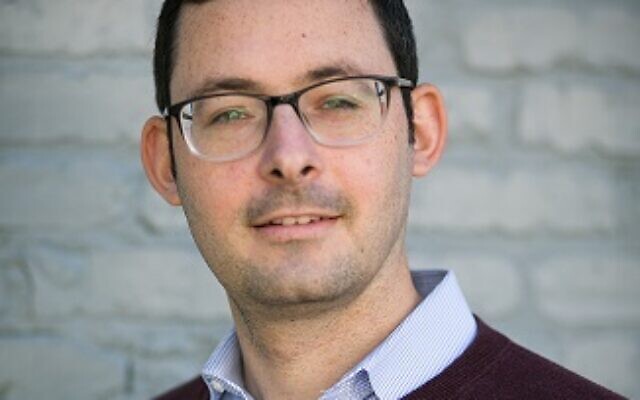
There’s no question that this year is different than other years, to quote the famous Passover question, and perhaps for Bet Haverim more than most. This is the congregation’s first holiday season without musical director Gayanne Geurin, and the first with their brand-new rabbi, Rabbi Mike Rothbaum.
Rothbaum hopes to bring with him a greater sense of engagement with the High Holy Days, organizing a daily blowing of the shofar for the entire month off Elul (something new to the congregation), as well as an experiential, conversational-based class for the month. Nevertheless, in the midst of these preparations, he’s still on the lookout for any potential pitfalls.
“We have to make sure that we have backup plans, and backup plans to the backup plans, and follow the data, always, always, always,” Rothbaum said. “It’s being able to be nimble, adaptable, turn on a dime, ‘hey, does the choir need masks, does everyone need masks, do we have to go from 900 to 600, do we have to go back to online?’ And we’re working on reinforcing our electronic infrastructure. We want to make sure that everyone on Zoom can see and hear, but also be seen and be heard. We don’t want any second-class citizens in davening.”
This, the question of not only preserving the overall health of the congregation but of integrating each congregant in the ways that work best for them, remains for many shuls the most pressing lesson and challenge of the pandemic.
It was certainly one that Congregation Or VeShalom took to heart. When Rabbi Josh Hearshen joined the synagogue in July 2020, the pandemic had just gone into full swing, and he and Executive Director Adam Kofinas were trying to find a way to reach congregants who were, for the most part, stuck at home.
“One of the things we started during COVID was — my first year here — we put together bags that people had either picked up or taken to their houses with lots of Rosh Hashanah at-home resources, and we did that again last year, and we’re continuing that,” Hearshen said. “We’re gonna have Rosh Hashanah bags either picked up or delivered to people’s houses.”
The pair found these mishloach-manot-esque bags to be extremely helpful for their outreach. “At one point, we were delivering challah every week to a dozen or so congregants,” said Kofinas.
“Challot that you were making,” interjected Rabbi Hearshen, “and I was making onion spread, so each of us made something and then we would go each week and deliver to people.”
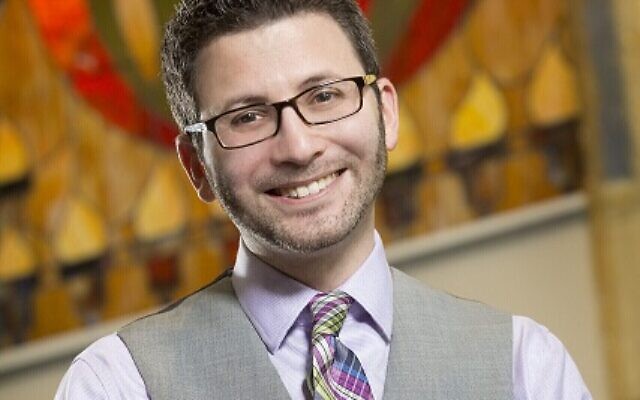
Kofinas nodded. “I remember one of our congregants lives up in Alpharetta,” he continued. “Of course, at that point, we’re all wearing masks outside and everything. She thought I was the Amazon delivery person dropping something off. She couldn’t understand why I didn’t just knock, leave the package and leave. When she saw and recognized who I was, she said, ‘What are you doing up here?’ because it was surprising. But it was really about reaching out to people and meeting them where they are.”
Other congregations, such as Temple Beth Tikvah, are also focusing on reaching their congregants both where — and when — they are.
“As we’re coming into this year, we’re only having a single traditional service, but what we’ve done differently is creating different types of services for different cohorts of individuals that take place in different locations around our campus,” Rabbi Alexandria Shuval-Weiner told the AJT.
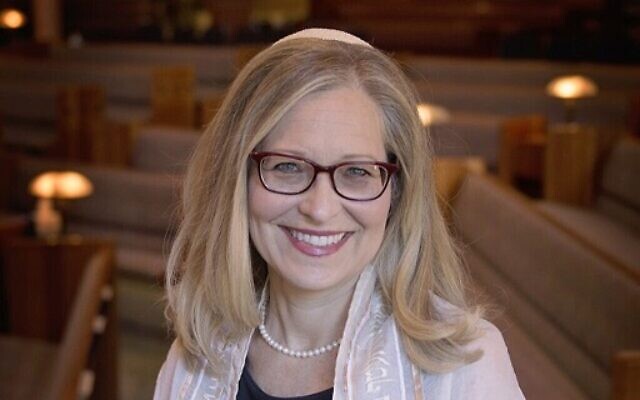
“For many teens, it’s hard for them to take off school. Instead of saying ‘you have to be at shul because that’s what you do,’ we’re trying to meet them where they are,” she explained. “So we’re doing lunchtime spiritual offerings for them, that will also be outside, under a beautiful setting. So if a student can be with us all day, and they can flow through services, that’s great, and if a student can only pop over for lunch, they will be warmly welcomed.”
Like Rothbaum, one of Shuval-Weiner’s biggest takeaways was flexibility. “Pivot,” she advised her colleagues. “Pivot and create lots of options.”
The staff at B’nai Torah seem to be following the same advice.
“On the first day of Rosh Hashanah, I think there are …” began Rabbi Joshua Heller, who paused to count on his fingers, “something like seven different services on first day Rosh Hashanah where you might have a chance to come and hear shofar and get some inspiration and participate in prayer, from our full-on traditional service to family options, to alternative options. So our congregants and others who want to become a part of our community are really able to find what will inspire and connect them the best.”
The congregation is also taking the opportunity to adjust where their services can take place. Prior to the pandemic, services were split between the synagogue and the church next door. Now, many of the services — including the youth services to be led by Rabbi Konigsburg — will take place down the road at The Weber School, which will provide more room.
“Another reason for the switch was that Weber had an outdoor space that the church didn’t really have for what we needed,” said Konigsburg, “and now that we have that partnership with Weber, it provides new opportunities that we’re excited about.”
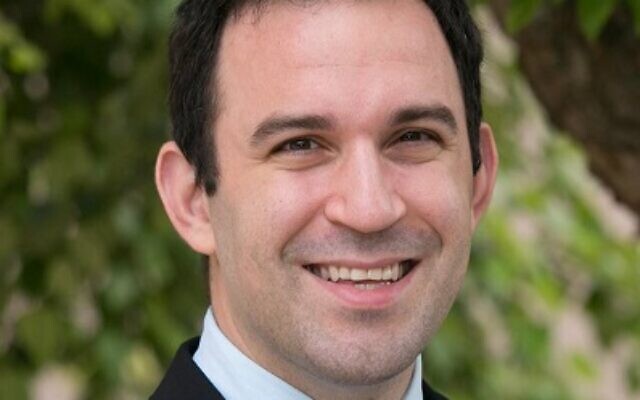
Shuttles will ferry congregants back and forth between the two locations.With the youth services led by Rabbi Konigsburg, the traditional services led by Rabbi Heller and alternative services led by the congregation’s newest rabbi, Rabbi Elizabeth Breit, the synagogue will offer close to twice the number of service options as they did before the pandemic.
Other synagogues have taken the opportunity provided by the pandemic to slow down and reconsider or shorten parts of their High Holy Days services.
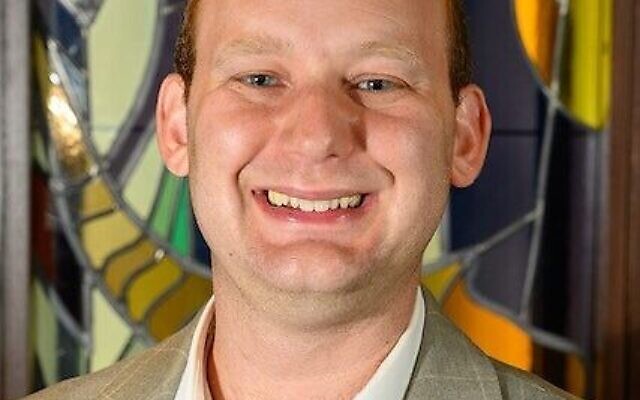
“Part of the pandemic is we’ve been having very serious conversations about how to streamline our services,” said Rabbi Daniel Dorsch of Congregation Etz Chaim. “The feedback we got almost universally was that people enjoyed the shorter services. So now we’re trying to find the happy medium, and I think we’ve done that this year.”
Marty Gilbert, the shul’s executive director, says the pandemic “caused us to really look at the service and see where we could change things up, and do things differently” before explaining how it also demonstrated what they needed to maintain.
“I know we had moved the Yizkor service a year ago, and found we really needed to keep it where it had always been. It gave us a chance to evaluate what our congregation wanted from a traditional point of view, to what else we could look at and change up a little bit. But in reality, things are going to look very, very similar (to before the pandemic),” he explained.
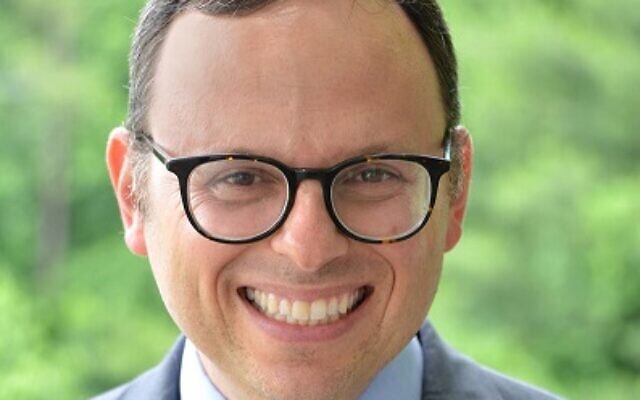
The return to (mostly) normal is also something that Rabbi Adam Starr, of Congregation Ohr HaTorah, is excited about.
“I’m looking forward to a real full-fledged High Holy Days experience with lots of people coming in to pray together, which is something I think we missed, certainly two years ago, and some during last year,” he said. “I’m really looking forward to being back with that full, strong energy of lots of people coming together to pray in person.”
In the past two years, many of their congregants had services outside in tents, but this year all services will be indoors.
“In general, we’re pretty much back to what we were doing pre-COVID,” Starr explained. “The only difference, and this probably has as much a function to do with growth as much as COVID, is that we used to have our secondary service in the Beit Midrash, which is a smaller space, and we’re moving that to the social hall.”
In fact, many synagogues are predicting much bigger crowds than they’ve had before, which has not only been driving a lot of changes in venue, but also reinforcing the technological shifts caused by the pandemic.
“It used to be that we were using every nook and cranny of our sanctuary,” said Rabbi Konigsburg. “I think one of the things that has changed with the pandemic is I think there are people who are able to have a meaningful experience from their living room, and that has taken some of the pressure off.”
B’nai Torah was one of a few synagogues to begin streaming services in part due to the pandemic. This also included fellow Conservative synagogue, Congregation Etz Chaim.
“Part of my mission as a rabbi has been to make Etz Chaim an inclusive community,” said Rabbi Dorsch, “and in many ways, with people still feeling a little uneasy about the pandemic, and also having portions of our community who are homebound or elderly, I realized what an important part the livestreaming plays in making our community more inclusive.”
Many other, mostly Reform synagogues, which had been streaming before the pandemic, spent some effort upgrading the technology they already had in place.
“We are looking forward to seeing our members this year and at present are happy and optimistic that our members will be attending in greater numbers in person,” said The Temple’s executive director, Mark Jacobson. “At the same time, our concurrent virtual offerings will be robust and of high quality, utilizing our new audiovisual technology system.”
Even Orthodox synagogues such as Congregation Beth Jacob, although they do not stream services, saw a greater use in remote viewing technologies.
“Everyone is now much more comfortable using technology,” explained Executive Director Rabbi Yitzchok Tendler, “especially our older members, who may have otherwise not been motivated enough to learn to use Zoom or other interfaces, so a lot of our (weekday) classes are being offered with a Zoom option now.”
Tendler also spoke to the mental balancing act that many shuls are now facing.
“We really try to be accommodating to people who may be at a disadvantage and need to be careful around germs and crowds,” he said. “So, on the one hand, we try to balance our capacity for them and do whatever possible; on the other hand, we’re satisfied and happy that we’re in a place where we’ve returned more-or-less to normal. It helps us appreciate that things are volatile and can change from week to week.”
At this point, almost all congregations are mask-optional, although many either offer mask-only seating/services — including The Temple and Congregation Beth Jacob — or are encouraging masking.
“We have kept it as being an option, with reminders that we are a community and we have to take care of one another. But we did not feel like we had to go back to requiring masks,” said Rabbi Shuval-Weiner. “That being said, they’re out everywhere when you walk in the door.”
One synagogue handling this issue with particular care is Bet Haverim, which instituted a health covenant, a Brit Briyut, almost as soon as the pandemic began. The covenant affirms the commitment of congregants to protecting one another and abiding by the congregation’s health and well-being protocols, as they are updated.
“While we intend to keep our doors open, as we always have, to anyone without the requirement of a ticket, we will likely require online reservations to be made, because we have the Brit Briyut,” said Lauren Rich, the congregation’s president. “Anyone who shows up will have to be in agreement with that Brit Briyut, that covenant of mutual well-being.”
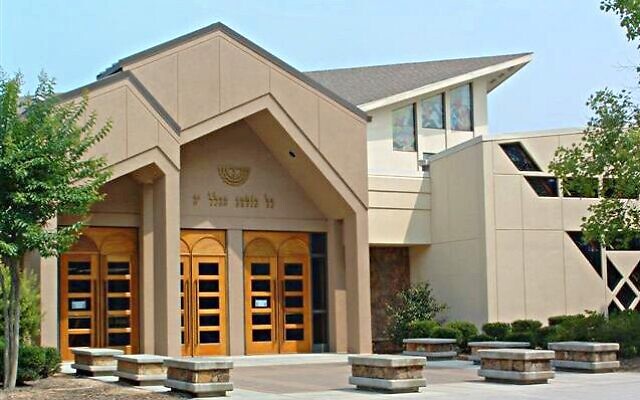
For Rabbi Rothbaum, the Brit Briyut is just one thing his congregation is doing to address a challenge that much of the Jewish community is facing these High Holy Days.
“My biggest concern,” he said, “is how do we look despair right in the face and say ‘Forget You,’ so our theme, this year, is going to be ‘Insist On Hope.’”
In speaking to Atlanta’s rabbis and cantors, it seemed that this is what every congregation is doing: insisting on hope for both change and consistency, for old traditions and new, hope for the High Holy Days and hope that we have gained something worthwhile from these past three years.
“We keep taking the lessons of what we gleaned, and what was most important and moving on, going forwards,” said Rabbi Shuval-Weiner. “I don’t think there’s too much going backwards anymore.”
- Synagogue Guide
- Local
- Robert Garber
- COVID-19 pandemic
- High Holy Days
- Congregation Bet Haverim
- Lauren Rich
- Rabbi Mike Rothbaum
- Congregation Or VeShalom
- Rabbi Josh Hearshen
- rosh hashanah
- temple beth tikvah
- Rabbi Alexandria Shuval-Weiner
- The Weber School
- B'nai Torah
- Congregation Ohr HaTorah
- congregation etz chaim
- The Temple
- Mark Jacobson
- Congregation Beth Jacob
- Rabbi Yitzchok Tendler
- Brit Briyut



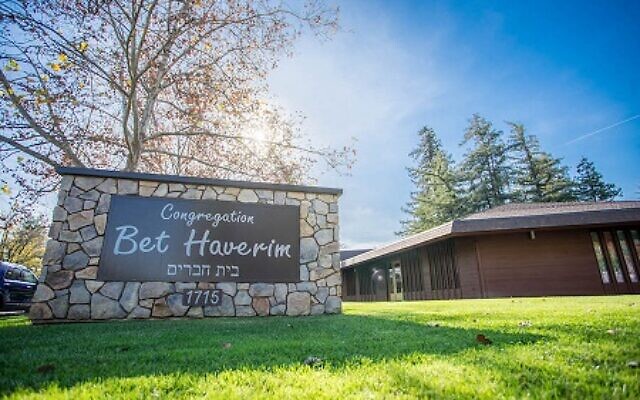
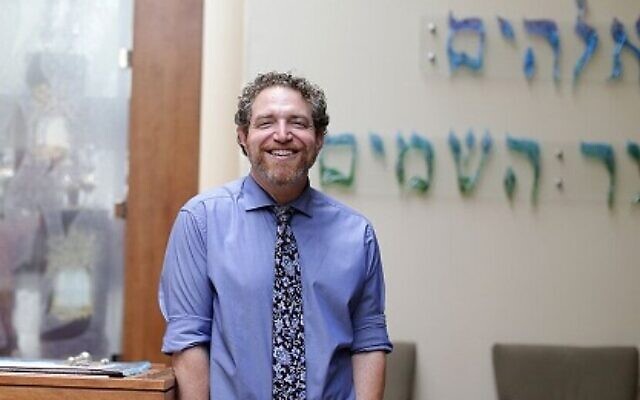
comments